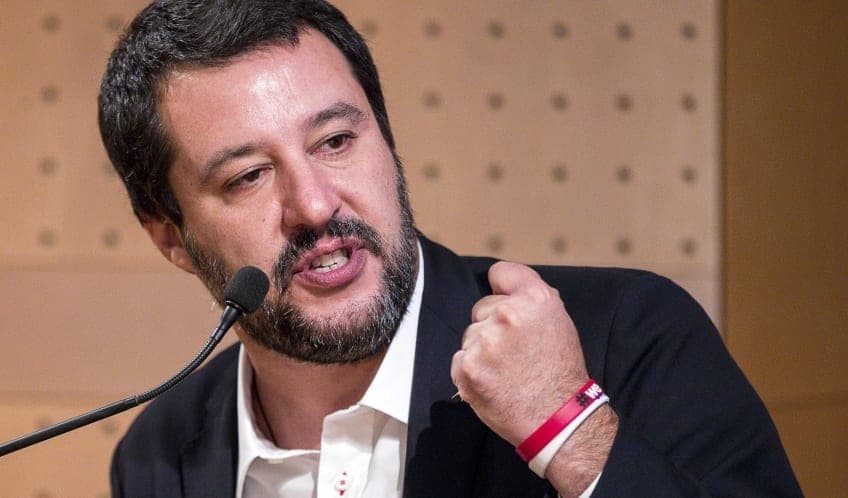ROME – Pseudo-religious and esoteric sects are on the rise in Italy according to a new study, which urges the Catholic Church and the government to protect faithful and citizens from this growing phenomenon in the pope’s own backyard.
“If young people seek Satan it means that there is an emptiness in people,” said Italian Cardinal Angelo Becciu, Prefect of the Congregation for the Causes of Saints, during a conference titled “The Trap of Sects” that took place at the LUMSA University in Rome Nov. 9.
The conference was organized and promoted by the Community of Pope John XXIII in collaboration with the Italian State Police, LUMSA University and the University Consortium Humanities, with the participation of high-ranking Church and government representatives.
According to a study by the Anti-sect Service of the Community of Faithful of Pope John XXIII, which has been actively involved in this phenomenon since 2002, the number of sects in Italy is growing. From the beginning of 2018 the Service received 2,467 requests for help by people who had fallen prey to sects, with a hike during Halloween, a significant increase from the 851 requests of 2007.
Northern Italy had a larger number of requests for help, at 39 percent, compared to the center, at 32 percent, and the south at 29 percent.
The most represented sects according to the study are characterized by anti-scientific attitudes, conspiracy theories and occult- or magic-based practices. These sects, which often have religious undertones, represent 41 percent of the whole, followed by sects that perform “extreme rites” (30 percent), magical and esoteric sects (16 percent) and pseudo-religious sects (13 percent.)
The proliferation of sects in Italy impacts all social classes, from high-middle class to poverty line families, with a higher participation of men (55 percent) compared to women. The study found that the most susceptible to these groups are the young, (35 percent), and illness is often among the principle motives behind joining a sect.
“Before this concerning phenomenon,” Becciu said, the Church must “bring ideals, meaning of life, to people and especially youth.”
According to Giovanni Paolo Ramonda, President of the Community of Pope John XXIII, “sects proliferate where there is unrestrained individualism and where communities abandon you,” and he warned against the “illusion traffickers.”
Attending the event, was also Italian Deputy Prime Minister and Interior Minister Matteo Salvini, head of the right-wing populist party Northern League, who spoke in favor of bringing the focus back to the family so that it may be strengthened and more capable of protecting itself of society’s threats.
Cases such as “cyberbullying, alcohol, drugs, gambling, prostitution, sects tell us that society has problems, suffers from individualism, egoism, excess of consumerism,” Salvini told the crowded university hall, adding that for this reason it’s necessary to “put the family at the center.”
The prime minister said that if hope, money, certainty and stability can be given back to the family, it might be capable of recovering “the commodity of time.”
“If we don’t start over from the lunch or dinner table, around which parents and children meet,” Salvini continued, there is a danger to young people because “if there’s no family, one goes in search of friends and relatives where it’s easy for criminals to hide.”
Salvini was asked about his thoughts on the crime of moral subjugation, which was used to criminalize the act of mentally manipulating another person and eliminated in Italy back in 1981. “I will gather opinions from those working in this field,” Salvini answered, while adding that there is a danger of making matters worse by implementing legislation.
What Salvini did promise was to continue to “work to give resources, space, more tools for those who know and do, as well as invite people to come forward.” The new government’s financial plan places enough funds to hire 8,000 new police agents, 500 of whom are with the Postal Police, which usually intercepts many of these cases involving sects. The Italian police also created an Anti-Sect Squad to address the issue.
“There is a new emergency: crime,” he said, “which passes through the net, where there are many perverts, creeps who must be arrested and cured.”
Speaking at the event, Francesca Capaldo, head of the Police’s Anti-Sect Squad, warned that it’s essential to put in place “prevention efforts that use information and the creation of a social consciousness of the dangers.”















